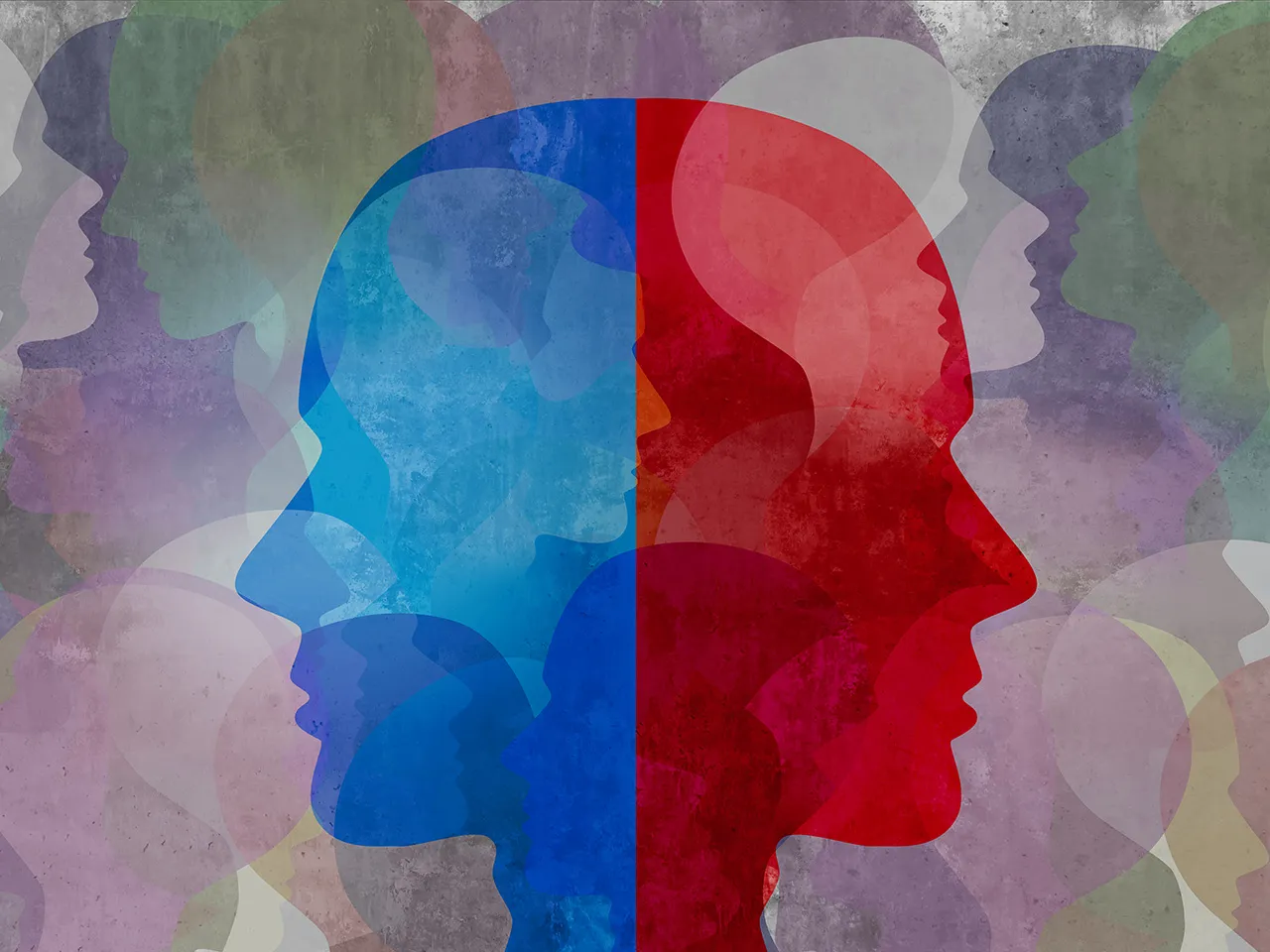What Is Drug-Induced Psychosis?
Drug-induced psychosis, also termed substance-induced psychotic disorder, is when delusions, hallucinations, or both develop as a result of substance use or withdrawal.
Psychosis may be associated with certain types of drug or alcohol misuse. However, while these drugs may regularly elicit profoundly altered states of mind and certain psychotic features, several other types of substances, when taken for a long period of time and in large enough amounts, can lead to a drug-induced psychosis.
How Does Drug Use Cause Psychosis?
Drug use can cause psychosis by changing the brain in the same areas that certain mental disorders do. In some cases, it is not the primary intoxication that results in psychosis but the withdrawal from a substance.
There may also be some risk of certain types of substance use contributing to the onset of schizophrenia in susceptible individuals. Having a genetic risk for schizophrenia development may also be associated with a stronger psychotic response to certain drugs.
Substance intoxication or withdrawal may bring on psychotic symptoms, and when this occurs, crisis intervention methods and medical detox may be necessary.
Which Drugs Can Cause Substance-Induced Psychosis?
Drugs that can cause substance-induced psychosis include:4,8
- Amphetamines.
- Methamphetamine.
- Cocaine.
- Alcohol.
- Benzodiazepines.
- Marijuana.
- LSD.
- Peyote.
- Mushrooms.
- Ketamine.
- PCP.
- Ecstasy.
Signs and Symptoms of Drug-Induced Psychosis
Drug-induced psychosis symptoms vary depending on the substance involved. The following drugs are associated with symptoms that could resemble those of certain mental illnesses.
Signs of Psychosis From Stimulant Drugs (Amphetamines, Methamphetamine, Cocaine)
When stimulant drugs are the cause of drug-induced psychosis symptoms, a person may experience:9
- Delusions.
- Paranoia.
- Hallucinations, including auditory, visual, and/or tactile with the feeling of “bugs” being under the skin (particularly with meth use and withdrawal).
- Anxiety.
- Mania.
- Increased aggression, violence, or hostility.
- Memory problems.
- Cognitive decline and difficulties concentrating.
Signs of Psychosis From Depressants (Alcohol, Benzodiazepines)
In the case of depressants causing drug-induced psychosis symptoms, the signs can include the following:4
- Impaired cognition
- Aggression
- Rapid mood changes
- Impaired judgment
- Perceptual distortions
- Hallucinations
- Delirium
- Withdrawal from depressants may also bring about mental health symptoms such as anxiety, perceptual disturbances, hallucinations, and other perceptual disturbances, or delirium.
Signs of Psychosis From Marijuana
Drug-induced psychosis symptoms from marijuana use include:10
- An altered perception of time.
- Heightened sensory perception.
- Fear.
- Panic.
- Paranoia.
- Hallucinations.
- Delusions.
- Sense of losing personal identity.
Research has shown a heightened risk of psychosis in those who had used cannabis in their adolescent years and who carried a specific gene, further showing that both genetic risk and substance misuse can play into the likelihood of developing a psychotic illness.
Marijuana can also worsen the course of schizophrenia in individuals with the disorder. When someone suffers from drug-induced psychosis, continued substance misuse can have dangerous consequences, as drugs may only serve to make psychotic symptoms worse and could make episodes of violence or self-harm more likely.
Signs of Psychosis From Hallucinogens/Dissociative (LSD, Peyote, Mushrooms, Ketamine, PCP, Ecstasy)
Psychosis from drugs such as hallucinogens or dissociative may cause the following:13
- Hallucinations
- Distorted sense of time and space
- Mixing of perceptions such as “seeing sounds” or “hearing color”
- Sense of dissociation from mind and body
- Distortion of reality
- Spiritual experiences
- Paranoia
- Panic
- Persistent psychosis marked by visual disturbances, problems organizing thoughts, mood shifts, and paranoia
- Hallucinogen persisting perception disorder (HPPD) marked by hallucinations and disturbances to vision, like seeing light trails or halos around objects that are moving
With some hallucinogenic drugs, “flashbacks” have been reported to occur suddenly and without warning long after the drug’s effects have worn off. In some cases, long-term substance use may also be associated with depression and suicidal thoughts.
In heavy meth users, psychotic symptoms may last months or even years past the point of quitting.
In many cases, psychosis may go away after the substance use is stopped; however, in others, symptoms may persist well beyond the point of substance use.
A severe psychotic episode may require hospitalization to stabilize an individual both mentally and physically in a safe and secure environment that can provide medical and mental health monitoring and care.
Why Can Drug Use Cause Psychosis?
Drug-induced psychosis may seem self-explanatory as to the cause—psychotic symptoms are brought on by drug misuse. However, the situation isn’t always so simple. Drugs can affect different people in a variety of ways, and what may cause psychotic symptoms in one person may not in another. It’s not possible to say with certainty exactly how a substance will impact each person’s mental state.
For example, a particular substance may bring on or worsen mental illness in someone genetically predisposed that that disorder but have no lasting effects on another person with a different genetic profile.
Additionally, it is not only that drug use can contribute to the development of mental health issues, but also that mental health disorders can contribute to substance use. While in some cases, it may appear that mental health symptoms sprung from the drug use, what actually might be occurring is that untreated symptoms of an underlying mental health condition were exacerbated by the substance misuse but not caused by it.
Co-occurring psychotic disorders and addiction can worsen the symptoms of both issues.
Treatment for Drug-Induced Psychosis
It can be helpful to understand how substance misuse and psychosis are intertwined, and which one may have predated the other, when determining treatment needs. When psychosis or mental illness occurs first, patterns of substance misuse may develop later a means of self-medication. In such an instance, treatment protocols may focus on not only managing a combination of acute intoxication and psychotic symptoms, but instituting a longer-term strategy—including behavioural therapeutic interventions and psychiatric medications—to manage the underlying mental health issue.
If the substance use occurred first and the psychosis is a by-product of drug use, the focus will be on managing the acute but transient psychotic symptoms with antipsychotics or anxiolytics.1Sometimes, just a quiet and safe place is all that is needed.
Co-occurring disorders are often best treated through a comprehensive program incorporating:
- Therapy for addiction.
- Education on mental health and drug misuse.
- Support groups.
- Skills training.
Several types of addiction treatment are available depending on your individual needs, including:
- Medical detox: Provides 24-hour medical supervision to ensure the detox process is as safe and comfortable as possible.
- Inpatient addiction treatment: Patients reside at the treatment facility while attending therapeutic programming.
- Outpatient addiction treatment: Patients attend treatment during the day and return home afterward. Various intensities are available such as partial-hospitalization programs (PHP).


